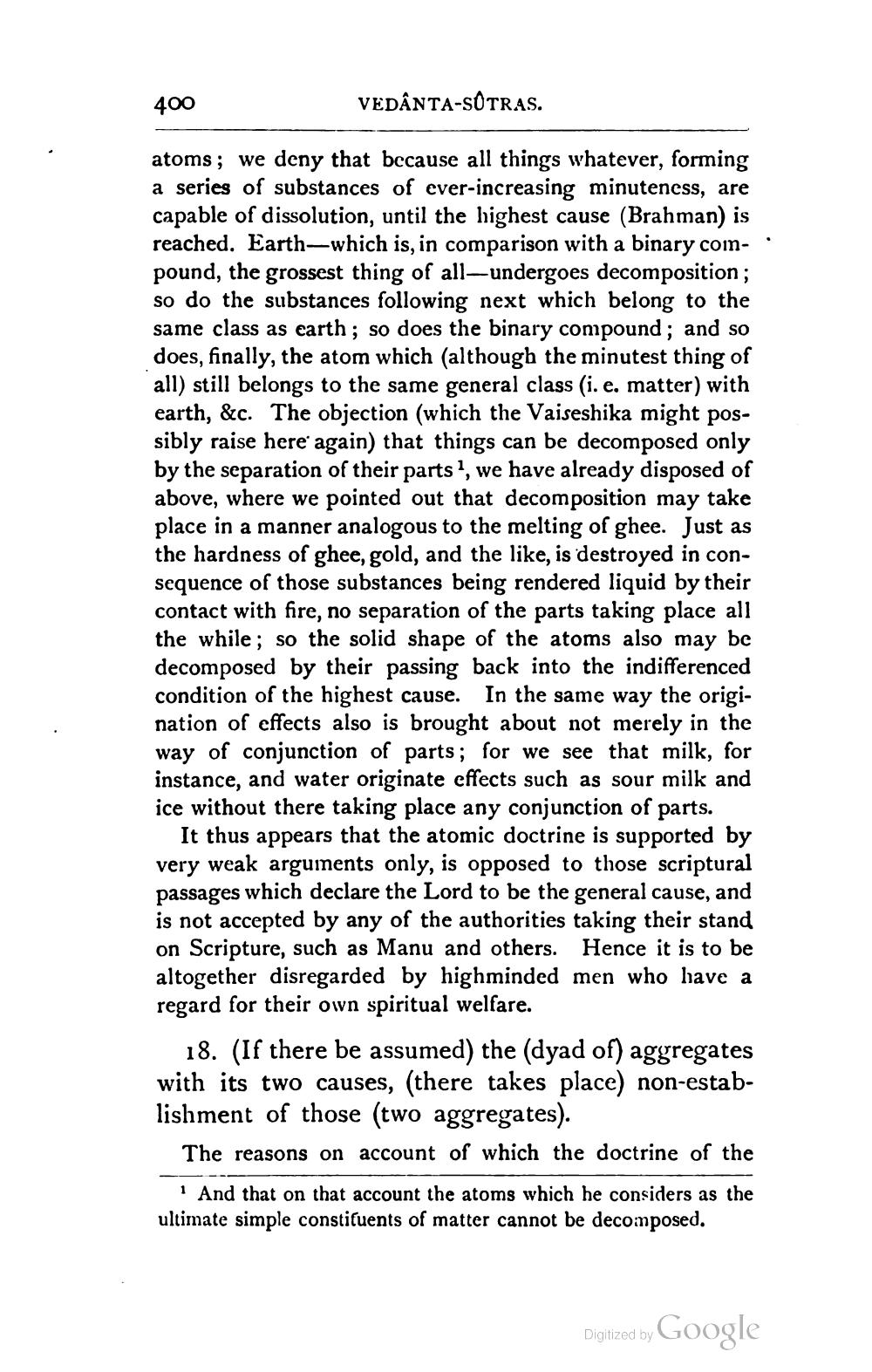________________
400
VEDÂNTA-SOTRAS.
atoms; we deny that because all things whatever, forming a series of substances of ever-increasing minuteness, are capable of dissolution, until the highest cause (Brahman) is reached. Earth-which is, in comparison with a binary coinpound, the grossest thing of all-undergoes decomposition; so do the substances following next which belong to the same class as earth; so does the binary compound; and so does, finally, the atom which (although the minutest thing of all) still belongs to the same general class (i. e. matter) with earth, &c. The objection (which the Vaiseshika might possibly raise here' again) that things can be decomposed only by the separation of their parts, we have already disposed of above, where we pointed out that decomposition may take place in a manner analogous to the melting of ghee. Just as the hardness of ghee, gold, and the like, is destroyed in consequence of those substances being rendered liquid by their contact with fire, no separation of the parts taking place all the while; so the solid shape of the atoms also may be decomposed by their passing back into the indifferenced condition of the highest cause. In the same way the origination of effects also is brought about not merely in the way of conjunction of parts; for we see that milk, for instance, and water originate effects such as sour milk and ice without there taking place any conjunction of parts.
It thus appears that the atomic doctrine is supported by very weak arguments only, is opposed to those scriptural passages which declare the Lord to be the general cause, and is not accepted by any of the authorities taking their stand on Scripture, such as Manu and others. Hence it is to be altogether disregarded by highminded men who have a regard for their own spiritual welfare.
18. (If there be assumed) the (dyad of) aggregates with its two causes, (there takes place) non-establishment of those (two aggregates).
The reasons on account of which the doctrine of the
1 And that on that account the atoms which he considers as the ultimate simple constituents of matter cannot be decomposed.
Digitized by
Digized by Google




